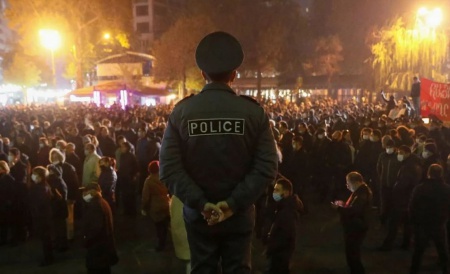 The True Source of Troubles Behind the Nagorno-Karabakh Conflict
The True Source of Troubles Behind the Nagorno-Karabakh Conflict
Recognizing of Nagorno-Karabakh as an independent state would be unreasonable and in clear breach of international law.
With the conflict between Armenia and Azerbaijan in the Nagorno-Karabakh in its most active phase since 1994, the questions about the legal status of this mountainous region located in the Caucasus are being discussed in the wider media more frequently. An unfortunate feature of such discussions is the fact that legal questions are usually discussed by specialists in fields other than international law. This results in quasi-legal or even unsubstantiated arguments that have no relevance to real legal science.
One such argument that has recently surfaced is a false equation mark between situations in Kosovo and in Nagorno-Karabakh. It wrongly claims that Kosovo can serve as a precedent for the so-called “remedial secession” of Nagorno-Karabakh from Azerbaijan. The simple fact of the matter is that Kosovo, as a case, has no connections to the Nagorno-Karabakh conflict.
This can be tested by a simple analysis of the international law position vis-à-vis Nagorno-Karabakh’s legal status. First, and foremost—it is a recognized part of the territory of Azerbaijan. The international community confirmed this several times through the United Nations. The most vivid example is 2008 UN General Assembly resolution 62/243 “The Situation in the Occupied Territories of Azerbaijan.” Moreover, that fact was confirmed judicially by the European Court of Human Rights in the 2015 case Chiragov et. al. v. Armenia. The court confirmed two necessary preconditions for military occupation (effective control and boots on the ground in paragraphs 180 and 186) and, thus, confirmed that Armenia occupied Nagorno-Karabakh and adjacent seven regions of Azerbaijan.
Second, unlike Kosovo, Nagorno-Karabakh’s autonomy was tied to a separate sovereign state—Azerbaijan Soviet Socialist Republic (AzSSR). AzSSR was in accordance with the Soviet Union’s Constitution of 1977 (Article 76) one of the sovereign member-states of the union. Nagorno-Karabakh, on the other hand, did not have a sovereign status. When the Soviet Union fell apart, its internal administrative borders became the international borders of the union’s former members, including Azerbaijan and Armenia. Moreover, none of the member-states or other entities of the Soviet Union had a chance to separate from the Soviet Union using its 1990 law that regulated secession. Soviet Union fell apart before the conditions of the law could be fulfilled by anyone.
Third, the right of peoples to self-determination, which was widely (but falsely) claimed for the Armenian population of Nagorno-Karabakh, was proven by competent international law specialists to be inapplicable to minorities and not a right to secession. The Armenian minority in Nagorno-Karabakh does not constitute separate “people” from peoples of Azerbaijan or Armenia. They are ethnically Armenian and formally citizens of Azerbaijan. Not a population of a theoretical overseas colony to be decolonized by the right to self-determination. That is why this right is in no way applicable to Nagorno-Karabakh.
მსგავსი სიახლეები
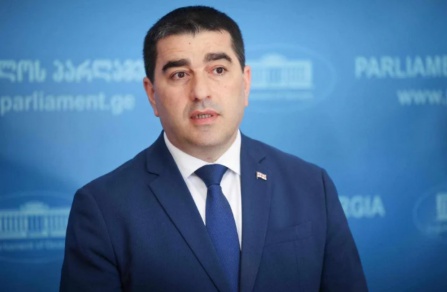 Speaker: Blackmail will not succeed, Georgia continues preparations for membership of true EU, founded on genuine European values
Speaker: Blackmail will not succeed, Georgia continues preparations for membership of true EU, founded on genuine European values
 Instead of demonising EU, authorities must revert to EU integration track -Ambassador Herczyński
Instead of demonising EU, authorities must revert to EU integration track -Ambassador Herczyński
 Interior Minister meets Migration Department Director
Interior Minister meets Migration Department Director
 EC publishes EU Enlargement Report
EC publishes EU Enlargement Report
 Koba Kobaladze awarded the participants of Zurab Iarajuli Memorial Tournament
Koba Kobaladze awarded the participants of Zurab Iarajuli Memorial Tournament
 Competition named after the hero of August War was held in mini football
Competition named after the hero of August War was held in mini football
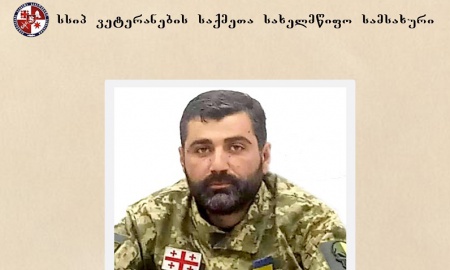 Koba Kobaladze offered his condolences to the family of Georgian soldier killed in Ukraine
Koba Kobaladze offered his condolences to the family of Georgian soldier killed in Ukraine
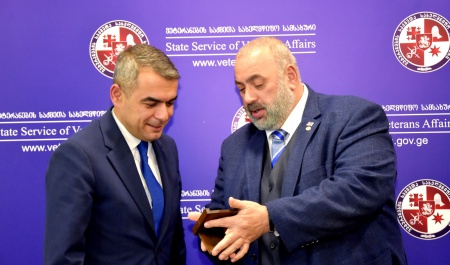 Koba Kobaladze held a meeting with the Turkish military attache
Koba Kobaladze held a meeting with the Turkish military attache
 An exclusive interview of “The Georgian Times” with a famous Georgian businessman Davit Iakobashvili
An exclusive interview of “The Georgian Times” with a famous Georgian businessman Davit Iakobashvili
 Chapidze Emergency Cardiology Center to hold a charity campaign
Chapidze Emergency Cardiology Center to hold a charity campaign
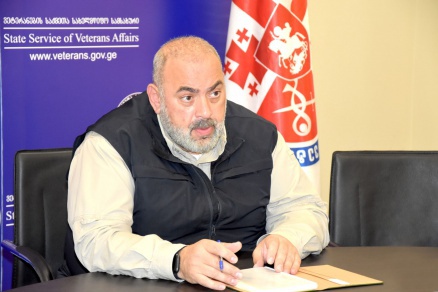 “There is a time when you have to fight and there is a time when you have to prepare for this fight...” - Koba Kobaladze
“There is a time when you have to fight and there is a time when you have to prepare for this fight...” - Koba Kobaladze
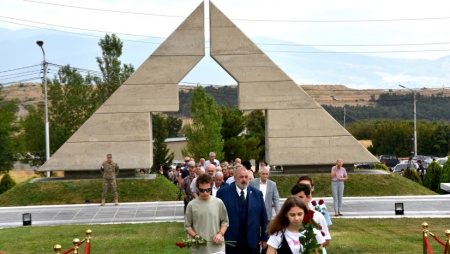 Koba Kobaladze laid a wreath at the graves of the soldiers died in the war of August 8 and paid tribute to the memory of the heroes who fell on the battlefield for the unity of the country
Koba Kobaladze laid a wreath at the graves of the soldiers died in the war of August 8 and paid tribute to the memory of the heroes who fell on the battlefield for the unity of the country
 Nikoloz Kvezereli attended the events dedicated to the Independence Day in Akhmeta Municipality
Nikoloz Kvezereli attended the events dedicated to the Independence Day in Akhmeta Municipality
 Koba Kobaladze met with the representatives of “TAPS Ukraine”
Koba Kobaladze met with the representatives of “TAPS Ukraine”
 Koba Kobaladze continues his official visit to Ukraine
Koba Kobaladze continues his official visit to Ukraine
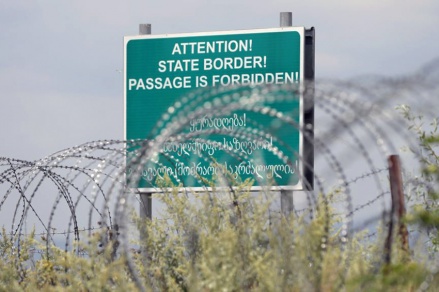 U.N. Members Stand By Georgia, Condemn Occupations
U.N. Members Stand By Georgia, Condemn Occupations
 Memorandum of Understanding with the charitable foundations REGI BASE and REGI BASE GEORGIA
Memorandum of Understanding with the charitable foundations REGI BASE and REGI BASE GEORGIA
 EU: Israeli response 'needs to be proportionate and with maximum restraint'
EU: Israeli response 'needs to be proportionate and with maximum restraint'
 The United States Embassy is deeply concerned by the government’s decision to detain the head of a major opposition political party at the party’s headquarters this morning
The United States Embassy is deeply concerned by the government’s decision to detain the head of a major opposition political party at the party’s headquarters this morning
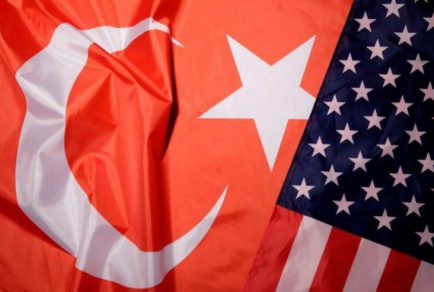 Majority of U.S. senators urge Biden to press Turkey on rights
Majority of U.S. senators urge Biden to press Turkey on rights